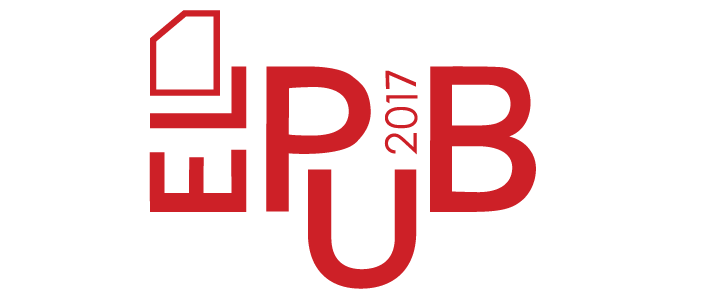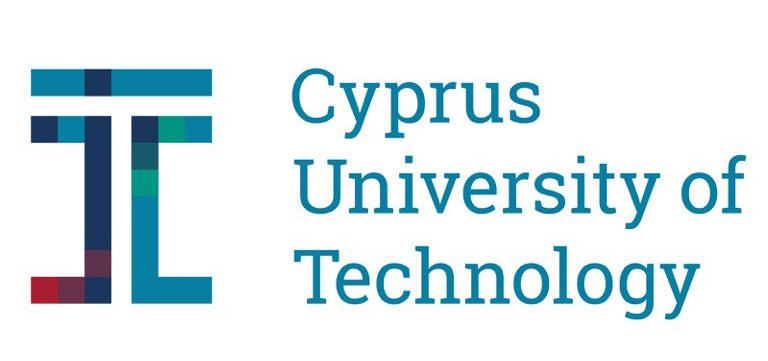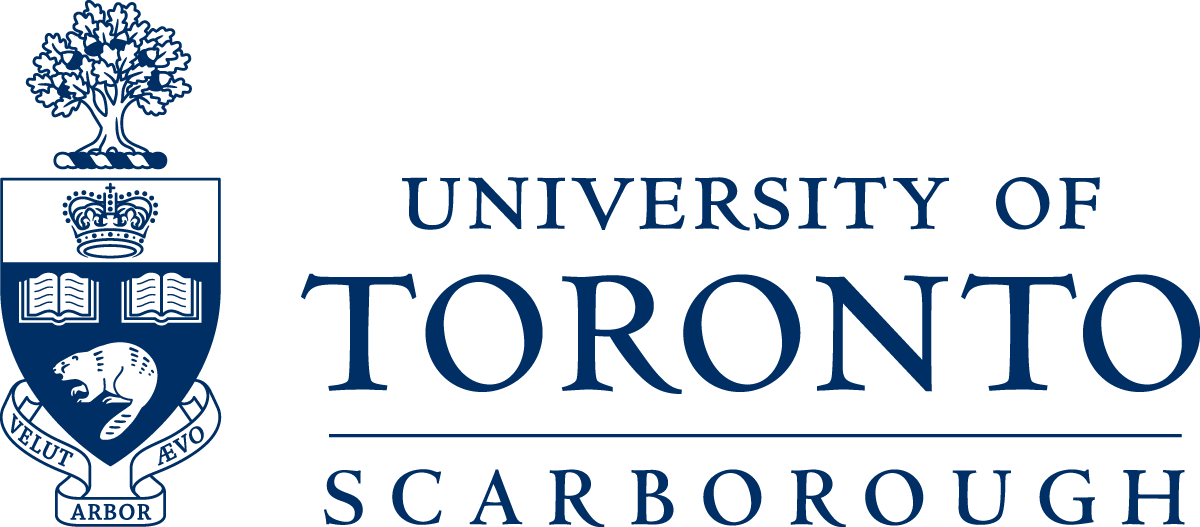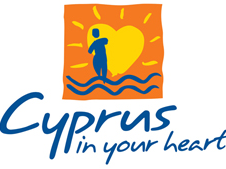History
- ELPUB 2016 - GÖTTINGEN, GERMANY
- ELPUB 2015 – VALLETTA, MALTA
- ELPUB 2014 - THESSALONIKI, GREECE
- ELPUB 2013 – KARLSKRONA, SWEDEN
- ELPUB 2012 - GUIMARAES, PORTUGAL
- ELPUB 2011 – ISTANBUL, TURKEY
- ELPUB 2010 - HELSINKI, FINLAND
- ELPUB 2009 - MILAN, ITALY
- ELPUB 2008 – TORONTO, CANADA
- ELPUB 2007 – VIENNA, AUSTRIA
- ELPUB 2006 – BANSKO, BULGARIA
- ELPUB 2005 - LEUVEN-HEVERLEE, BELGIUM
- ELPUB 2004 - BRASÍLIA - DF, BRAZIL
- ELPUB 2003 - MINHO, PORTUGAL
- ELPUB 2002 - KARLOVY VARY, CZECH REPUBLIC
- ELPUB 2001 - CANTERBURY, UK
- ELPUB 2000 - KALININGRAD, RUSSIA
- ELPUB 1999 - RONNEBY, SWEDEN
- ELPUB 1998 - BUDAPEST, HUNGARY
- ELPUB 1997 - CANTERBURY, UK
International Conference on Electronic Publishing - Article
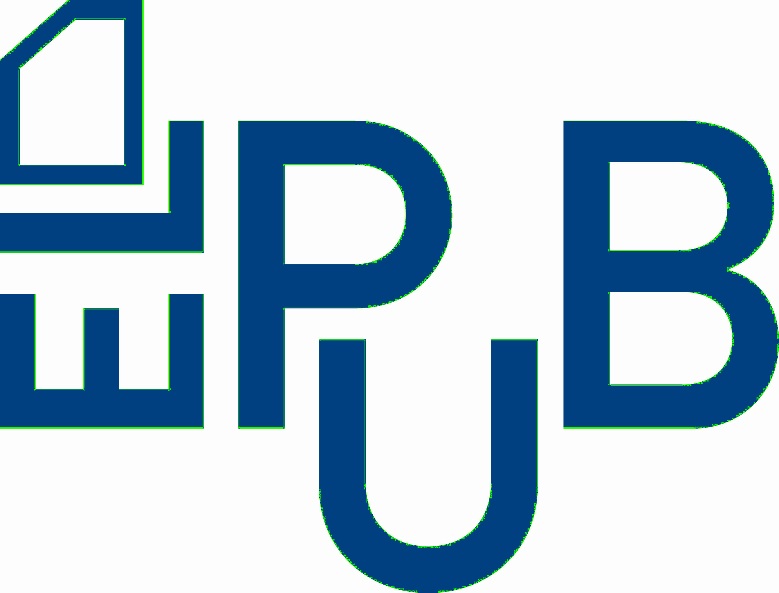 The International Conference on Electronic Publishing (Elpub) has featured research results in various aspects of electronic publishing for the last 20 years, involving a diverse international community of researchers in computer and information sciences, librarians, developers, publishers, entrepreneurs and managers. It is unique as a platform for both researchers and professionals. The entire collection of conference papers is available at Elpub Digital Library (http://library.elpub.net). The Conference is held annually and contains a multi-track presentation of refereed papers but it also includes invited talks, special sessions as well as poster presentations.
The International Conference on Electronic Publishing (Elpub) has featured research results in various aspects of electronic publishing for the last 20 years, involving a diverse international community of researchers in computer and information sciences, librarians, developers, publishers, entrepreneurs and managers. It is unique as a platform for both researchers and professionals. The entire collection of conference papers is available at Elpub Digital Library (http://library.elpub.net). The Conference is held annually and contains a multi-track presentation of refereed papers but it also includes invited talks, special sessions as well as poster presentations.
The Elpub History
From 14th – 16th April 1997 the first conference was held at the University of Kent in Canterbury. It was entitled: "Electronic Publishing '97 – New Models and Opportunities".
First we must look to the night sky. Almost two years before on 23rd July 1995 a new comet was discovered, observed independently by two amateur astronomers, Alan Hale and Thomas Bopp, near their homes in New Mexico and Arizona.(1) John Smith, science and technology librarian at the University of Kent and local organizer of the first conference, shared their enthusiasm for astronomy, often watching the stars from his garden to the north of Canterbury.
Preparations for the conference were intensive during the final days of March 1997 when Comet Hale-Bopp was at its closest to the earth and visible to the naked eye. We often worked long after the Library had closed and, apart from the light in John's office, the building was shrouded in darkness. Driving home one night through the woods north of Canterbury we looked up at the sky and there it was, incredibly bright and unbelievably beautiful - a comet, sign of momentous change since ancient times, was passing over our new conference, that was something really special.
This is how we arrived at that night.'
Two international organizations and a small group of individuals were responsible for the creation of the Electronic Publishing Conference which this year celebrates its twentieth anniversary. The first organization was the International Council for Computer Communications (ICCC) and the second the International Federation for Information Processing (IFIP).
The idea of a conference on electronic publishing was first discussed at IFIP and a joint conference with ICCC suggested by Prof. Dipak Khakhar of the University of Lund, treasurer of IFIP and a member of the Executive Committee of ICCC during the 1990s.
ICCC was a non-profit corporation set up in 1972 and an affiliate member of IFIP. Members were known as governors and their numbers limited to 125. They came from all fields of computer communications and included distinguished scientists, technologists, economists and government officials.
"By 1970 one human generation had seen several generations of computers used in almost all forms of endeavour. With the expansion of applications had come the need for computers to collect, share and distribute information over large distances. The courtship of computers and telecommunications had begun. Mismatches had appeared, mismatches between computer needs and telecommunication services, mismatches that varied by country, mismatches whose timely resolutions were made difficult by mismatched planning cycles and mismatched interests." (2)
The governors of ICCC were the 'matchmakers', "providing stimuli and means for communication between people of many interests and disciplines who could contribute to the general understanding of potential advances, risks, problems and solutions related to computer communications." (3)
IFIP www.ifip.org is the leading multinational, apolitical organization in Information and Communications Technologies and Sciences. It is recognized by the United Nations and other world bodies and has a consultative role in UNESCO. It represents IT societies from 56 countries or regions across the world and sponsors 100 conferences a year. It links more than 3,500 scientists from Academia and Industry organized in over 100 working groups reporting to 13 technical committees.
In 1996 a COMNET workshop was organised by Dr. S. Ramani of ICCC at his college (the National Centre for Software Technology) in Mumbai. COMNET was a conference series similar to Electronic Publishing organised by ICCC and Dr.Ramani was the organizer in India. The aim of these conferences was to study computer networks, their applications and impacts. After the workshop a party was held on the roof terrace of Dr. Ramani's house and it was here that he introduced Prof. Khakhar and Dr. Michael Miller, also a member of ICCC, to John Smith who expressed an interest in organising the conference. Already it had an international flavour with the night sky again providing the backdrop. A senior manager at British Telecom Laboratories, Michael was an expert in digital communications. John had a particular interest in the growing use of networks and computing in academic communications. Dr. Ramani had first contacted John in the early 1990s when he noticed his work as reviews editor for the quarterly newsletter of the Society of Artificial Intelligence and Simulation of Behaviour (AISB, www.aisb.org.uk) What had caught his eye was John's job title at the time 'National Project Officer at the UK Office for Library Networking (UKOLN) because he had been planning a series of workshops on the topic of Library Networking for the British Council. A series of meetings were held and the idea became a reality.
Prof. Jack Meadows from Loughborough University, where both Dipak and John had studied, was invited to head the Programme Committee and they were joined by Fytton Rowland, also from Loughborough. The team was in place, the call for papers went out and the first Electronic Publishing Conference was under way.
The conference was aimed at anyone involved in the production, provision or use of electronic publishing, its products and academic study of these activities. In the press release and repeated on the final programme, Prof. Meadows wrote: "We intend that this conference be a stimulating experience, with a great deal of cross fertilization of ideas. The combination of practical experience and the latest discoveries of academic research will undoubtedly lead to new models of academic and other publication in the near future" (4).
There were two parallel tracks, one on socio-economic issues and the other on technical issues and plenary sessions for papers and discussions covering all aspects of electronic publishing. In 1997 more papers were submitted on socio-economic than technical issues so the second track included both. "All the papers were necessarily concerned with some aspect of the transition from printed to electronic information." (5)
Now we must return for a moment to the beginning and the garden. As registrations started to come in we put a map of the world on the wall in John's office in the library and marked with pins the home countries of our delegates, three different colours to distinguish delegates, speakers and committee members. When we were in the garden watching the stars we often saw planes flying out from London and wondered about the people on board and the countries they were heading for. Would some of those planes now be carrying our delegates on their return flights. By the eve of the conference we had 130 pins in 28 countries. Soon we would see the faces of all the names on our list and we imagined everyone packing their cases and heading for stations and airports to travel to Canterbury. Would they really come? Would it be a success? They did, it was and so it has continued with delegates from fifty countries travelling to venues across the world.
In 1997 a group of about twenty delegates from Central and Eastern Europe travelled to Canterbury under the auspices of the Electronic Publishing Development Programme of the Open Society Institute (OSI) based in Budapest and led by Michael Kay. The OSI is part of the Open Society Foundation, founded by George Soros in 1979 to encourage the replacement of authoritarian governments with open and democratic societies. www.opensocietyfoundations.org Originally it was planned to hold the conference every two years but the OSI expressed an interest in hosting it at the Central European University www.ceu.edu in Budapest (founded by Soros in 1991) the following year and so it became an annual event. The involvement of the OSI enriched the early years of the conference enormously by broadening the diversity of countries represented and the range of challenges faced. Attending as delegates in Canterbury many were then speakers in Budapest and Sweden. Their papers described the terrible events taking place in their countries and are still powerful and moving to read today:
The conference in Budapest was entitled "Electronic Publishing '98 – Towards the Information Rich Society", Milena Dobreva and Serguey Ivanov from Bulgaria posed the question:
"What does it mean in countries which are not rich and where information is not valued". (6)
The following year in Sweden Kemal Bakarsic from Saravejo and Zoran Gligorov from Macedonia presented papers concerning war and democracy in their countries.
Kemal Bakarsic spoke of the struggle to recover in Bosnia after the near obliteration of book production and the "killing of memory" through the "deliberate destruction of libraries". (7)
Zoran Gligorov wrote his paper as NATO troops were entering Macedonia. He talked to local people about democracy and found a difference between the reactions of young and old: "it is obvious that the totalitarian forces still have their effects on the citizens, and not all will talk freely what they feel and think. This is true especially with the elderly people, those who felt the totalitarian forces on their skin". (8) It was easier for young people in countries in transition to access democracy through the internet and become 'digital citizens'.
As a result of the special contribution of the OSI it was decided to try and alternate between east and west. After Sweden the conference was held in Russia in 2000 and then returned to Kent in 2001. This ceased after ten years mostly due to difficulties in finding organizers in eastern countries but also because the east-west concept had shifted out of focus.
The final event on the programme is the hand-over. People wishing to host an Elpub conference in their own country are required to play a part on the programme committee of the previous conference. This idea came out of the first Conference and for two decades has generated a strong sense of continuity within the organizing and programme committees.
Without the vision and commitment of the people described in this article and those who took over from them, the conference would not be celebrating its twentieth anniversary this summer, an achievement of which everyone involved can be proud.
My hope is that around the world, from Armenia to the USA, people will continue to stand in their gardens searching the sky for comets and stars - and planes carrying delegates to future conferences to meet and exchange ideas.
I am indebted to Dipak Khakhar and John Smith for sharing their memories with me and to Peter Linde for all his encouragement', thereby enabling the completion of this history.
Olivia Holmes, May 2016
Countries represented in 1997: Armenia, Australia, Belarus, Belgium, Canada, Croatia, Czech Republic, Denmark, Estonia, Finland, France, Germany, Hungary, Ireland, Japan, Latvia, Lithuania, Macedonia, Netherlands, Romania, Russia, Slovakia, Spain, Sweden, Switzerland, Ukraine, United Kingdom, USA.
Countries represented in 1998: Albania, Australia, Bosnia, Bulgaria, Canada, Croatia, Czech Republic, Estonia, France, Germany, Hungary, Ireland, Israel, Latvia, Lithuania, Luxembourg, Macedonia, Netherlands, China, Russia, Slovenia, Spain, Sweden, Switzerland, Ukraine, United Kingdom, USA, Yugoslavia.
Overview
Electronic publishing has been one of the hottest topics discussed by researchers from a variety of disciplines since the publication of 'The scholarly skywriting' by Harnad in the 1980s. (9) In this seminal work the potential of electronic publishing started to emerge as a challenge to the well-established business model of commercial publishers. It was certainly in this context that the first Elpub thinkers initiated the conference. At the very beginning Elpub comprised simply the presentation of papers. In 1999 two panel debates were introduced whose speakers were invited to participate and received grants from the conference for that. Over the subsequent years, Elpub has gradually incorporated features of other, well-established international conferences. Especially since 2003 a variety of sessions started to be a regular part of the conference programme organised in two tracks, namely general and technical. They consisted of special sessions focusing on specific topics – mostly on technical aspects of electronic publishing – posters and demonstrations. A gradually increasing variety of topics have been included in the Call for Papers and through the years there have been presentations by delegates from ca. 50 countries.
Open access is definitely a current key issue, though in contrast with a significant number of works that discuss issues related to copyright and intellectual property rights. Although they may sound like a contradiction these themes relate very closely and therefore it does make sense to focus on both. Particularly in the first decade of the millennium, open access and international repositories have been on the agenda of Elpub authors. This reflects the hot world-wide debate pointing to the definition of the future agenda. A number of works concerned with information retrieval, digital libraries and the semantic web (comprising ontology, topic maps, thesaurus and classification) can also be identified. It is noted, however, that the majority of works focus more on technological than on human aspects (i.e. impacts on the scholarly community, including authors, publishers and users) of the electronic publishing debate (10).
Keywords like Open Access, XML, Metadata, Preservation issues, semantic web, information retrieval, scholarly communication and Institutional Repositories have dominated the conference over the last years, and will probably continue to do so for the time being. There is a clear focus on users which may be related to the strong presence of experts from information and library science, which, along with computer science, are the major areas with expertise in electronic publishing so far. Co-authorship definitely constitutes the communication pattern of authors who work on electronic publishing. This is a growing tendency, perhaps reflecting the influence of the topic itself on the information behaviour of the research community.(11)
ELPUB can look back on a track record of a steadily growing number of conference papers. From a long-term perspective, access to this body of knowledge is of great interest to the community. Beyond this, extended preoccupation with the collected scientific work in the area of digital publishing has to be mentioned. Naturally, the authors are particularly focused on the individual paper itself and possible connections with related efforts. Typically, conferences amplify and enhance opportunities of "getting- together". A well-stocked repository may, however, serve in this respect as a fruitful complementary addition. All Elpub papers are available open access via the Elpub digital archive (12, 13).
ELPUB Editions
 Canterbury 1997: New Models and Opportunities
Canterbury 1997: New Models and Opportunities
Keynote: The Slow Evolution of Electronic Publishing – Andrew M. Odlyzko, AT&T Labs-Research
Electronic Publishing: The Evolution and Economics of a Hybrid Journal – David F. Brailsford, Electronic Publishing Research Group, University of Nottingham
 Budapest 1998: Towards the Information-Rich Society
Budapest 1998: Towards the Information-Rich Society
Keynotes: The Impact of Electronic Publishing on the Scientific Information Chain – Sir Roger Elliott, Oxford University, Chairman ICSU Press
Towards an Information-Rich Society? Or an Information-overloaded one? – Miles Ellis, Educational Technology Resources Centre, University of Oxford
 Ronneby 1999: Redefining the Information Chain: New Ways and Voices
Ronneby 1999: Redefining the Information Chain: New Ways and Voices
Keynote: Digital Libraries in the New Millennium: Partners, Publishers, Potentials and Pitfalls – David Seaman, Director electronic Text Center, University of Virginia
 Kaliningrad 2000: Electronic Publishing in the Third Millennium
Kaliningrad 2000: Electronic Publishing in the Third Millennium
Keynote: How to Free Scholarly and Scientific Research Literature Online Through Public Self-Archiving – Steven Harnad, Intelligence/Agents/Multimedia Group, University of Southampton
 Canterbury 2001: 2001 in the Digital Publishing Odyssey
Canterbury 2001: 2001 in the Digital Publishing Odyssey
Keynote: The State and the Content: Electronic Publishing and Policy Measures – Giuseppe Vitiello, Programme Advisor, Electronic Publishing, Books and Archives, Conseil de l`Europe
 Karlovy Vary 2002: Technology Interactions
Karlovy Vary 2002: Technology Interactions
Keynote: Information Literacy in the Electronic Publishing Age – Ana Maria Ramalho Correia, Instituto Superior de Estatistica e Gestao de Informacao and José Carlos Teixeira, Departamento de Matematica, Universidade, de Coimbra, Portugal
 Guimaraes 2003: From Information to Knowledge
Guimaraes 2003: From Information to Knowledge
Keynote: Dublin Core and Emerging Conventions for a Semantic Web – Thomas Baker, Institutzentrum Schloss Birlinghoven Fraunhofer-Gesellschaft, Germany
 Brasilia 2004: Building Digital Bridges: linking Cultures, Commerce and Science
Brasilia 2004: Building Digital Bridges: linking Cultures, Commerce and Science
Keynote: Access Changes Everything: The Benefits of Open Access and Open Semantics for Researchers – Leslie Carr, University of Southampton
 Leuven 2005: From Author to Reader: Challenges for the Digital Content Chain
Leuven 2005: From Author to Reader: Challenges for the Digital Content Chain
Keynote: Beyond the Page – Lou Burnard, Oxford University Computing Services, European editor of the TEI
 Bansko 2006: Integrating Technology and Culture
Bansko 2006: Integrating Technology and Culture
Keynote: The Brave New World of Scholarly Repositories – Herbert van de Sompel, team leader of the Digital Library Research and Prototyping Team at the Research Library of the Los Alamos National Laboratory
Worldwide "Communitarian" Online Publishing: An Exercise in Wishful Thinking – Dan Matei, director of CIMEC Institute for Cultural Memory, Bucharest
 Vienna 2007: Openess in Digital Publishing: Awareness, Discovery and Access
Vienna 2007: Openess in Digital Publishing: Awareness, Discovery and Access
Keynotes: Technical Infrastructure and Policy Framework for Maximising the Benefits from Research Output – Keith G. Jeffery, Science and Technology Facilities Council, Rutherford Appleton Laboratory, UK.
Scientific Publishing in the Digital Era – Norbert Kroó, Hungarian Academy of Sciences
 Toronto 2008: Open Scholarship: Authority, Community and Sustainability in the Age of Web 2.0
Toronto 2008: Open Scholarship: Authority, Community and Sustainability in the Age of Web 2.0
Keynotes: Quality of Open Scholarship: What Follows from Open? – John Willinsky, Stanford Graduate School of Education
Filling OA Space at Long Last: Integrating University and Funder Mandates and Metrics - Steven Harnad, Université du Québec á Montréal
 Milano 2009: Rethinking Electronic Publishing: Innovation in Communication Paradigms and Technologies
Milano 2009: Rethinking Electronic Publishing: Innovation in Communication Paradigms and Technologies
Keynotes: Digital Futures: Strategies for the Information Age – Simon Tanner, digital Consultancy Services, King´s College London
Electronic Publishing and Bibliometrics – Henk F. Moed, Centre for Science and Technology Studies (CWTS), Leiden University Netherlands
 Helsinki 2010: Publishing in the Networked World: Transforming the Nature of Communication
Helsinki 2010: Publishing in the Networked World: Transforming the Nature of Communication
Keynote: Building the Future by Understanding the Past: Scholarly Use Paterns and E-pubs – Carol Tenopir, School of Information Science, University of Tennessee, USA
 Istanbul 2011: Digital Publishing and Mobile Technologies
Istanbul 2011: Digital Publishing and Mobile Technologies
Keynotes: Information in Context: The Mobile Environment – Ayse Göker, Centre for Interactive Systems Research, City University London
Google Art Project: Democratizing Art – Zeynep Inanoglu, Product Marketing Manager, google Turkey
Mobile Information Retrieval:Memex on the Move – Nothing can be more Surprising than Life – Fazli Can, Bilkent Information Retrieval Group, Bilkent University
 Guimaraes 2012: Social Shaping of Digital Publishing: Exploring the Interplay Between Culture and Technology
Guimaraes 2012: Social Shaping of Digital Publishing: Exploring the Interplay Between Culture and Technology
Keynote: Planned Obsolescence: Publishing, Technology and the Future of the Academy – Kathleen Fitzpatrick, Associate Executive Director and Director of Scholarly Communication at the Modern Language Association
 Karlskrona 2013: Mining the Digital Information Networks
Karlskrona 2013: Mining the Digital Information Networks
Keynotes: Getting Value out of our Digital Trace: A Strategy for Unleashing the Economic and Social Potential of Data Sharing – Stephan Shakespeare, UK government´s Data Strategy Board
Social Computing Leveraging Online Social Informatics – Felix Wu, Computer Science Department, UC Davis, USA
 Thessaloniki 2014: Let´s Put Data to Use: Digital Scholarship for the Next Generation
Thessaloniki 2014: Let´s Put Data to Use: Digital Scholarship for the Next Generation
Keynotes: Towards Robust Linking and Referencing for Web-Based Scholarly Communication – Herbert Van de Sompel, team leader of the Prototyping Team at the Research Library of the Los Alamos National Laboratory
How the British Library's Digital Scholarship department is putting data to use for researchers through its Digital research Team and British Library Labs project – Mahendra Mahey, Project manager of British Library Labs
 Valetta 2015: New Avenues for Electronic Publishing in the Age of Infinite Collections and Citizen Science: Scale, Openness and Trust
Valetta 2015: New Avenues for Electronic Publishing in the Age of Infinite Collections and Citizen Science: Scale, Openness and Trust
Keynote: Constructing Scientific Communities: Citizen Science in the 19th and 21st Centuries – Gowan Dawson, University of Leicester
 Göttingen 2016: Positioning and Power in Academic Publishing: Players, Agents and Agendas
Göttingen 2016: Positioning and Power in Academic Publishing: Players, Agents and Agendas
Keynotes: Whither Open Access? Four Scenarios and Four Choices - Jean-Claude Guèdon, University of Montréal
After the Spring: digital Forms of Scholarship and Publication Ecosystem - Tara Andrews, University of Bern
External links
Elpub homepage - http://www.elpub.net
Elpub paper repository - http://library.elpub.net
Proceeding of the 16th International Conference on Electronic Publishing, 2012. Social Shaping of Digital Publishing: Exploring the Interplay Between Culture and Technology.
http://ebooks.iospress.nl/book/social-shaping-of-digital-publishing-exploring-the-interplay-between-culture-and-technology
Proceedings of the 17th International Conference on Electronic Publishing, 2013. Mining the Digital Information Networks. http://ebooks.iospress.nl/book/mining-the-digital-information-networks-proceedings-of-the-17th-international-conference-on-electronic-publishing
Proceedings of the 18th International Conference on Electronic Publishing, 2014. Let´s put Data to Use: digital Scholarship for the Next Generation. http://ebooks.iospress.nl/book/lets-put-data-to-use-digital-scholarship-for-the-next-generation
Proceedings of the 19th International Conference on Electronic Publishing, 2015. New Avenues for Electronic Publishing in the Age of Infinite Collections and Citizen Science: Scale, Openness and Trust. http://ebooks.iospress.nl/book/new-avenues-for-electronic-publishing-in-the-age-of-infinite-collections-and-citizen-science-scale-openness-and-trust-proceedings-of-the-19th-international-conf
Neugebauer, Tomasz. Report on the 16th International Conference on Electronic Publishing: Social Shaping of Digital Publishing. D-Lib Magazine vol. 18(11-12), 2012. http://www.dlib.org/dlib/november12/neugebauer/11neugebauer.html
References
- Comet Hale-Bopp. Wikipedia article. https://en.wikipedia.org/wiki/Comet_Hale%E2%80%93Bopp
- The Computer Communications Revolution: multi-disciplinary retrospective and prospective, ed. S. Ramani and Pramode K. Verma, Washington D.C. ICCC Press c.1997
- S.Ramani and Pramode K. Verma, reference 1.
- Press Release - ICCC/IFIP announce Conference on Electronic Publishing for April 1997 http://covax.bth.se/elpub/1997/icccpr.htm.
- Meadows, Jack. Summary of Track 1 Presentations. In Electronic Publishing '97 - New Models and Opprtunities: Proceedings of an ICCC/IFIP Conference. ELPUB. Kenterbury, UK: University of Kent, 1997.
- Dobreva, Milena, and Serguey Ivanov. Issues In Electronic Publishing on The Medieval Slavic and Byzantine World. In Proceedings of an ICCC/IFIP Conference. ELPUB. Washington D.C.: ICCC Pres, 1998.
- Barkarsic, Kemal. Bosnia - War - Democracy - Information. In Electronic Publishing '99. Redefining the Information Chain - New Ways and Voices: Proceedings of an ICCC/IFI Conference. ELPUB. Washington D.C.: ICCC Pres, 1999.
- Gligorov, Zoran. Electronic Publishing and Democratisation of the Transitional Society in Macedonia. In Electronic Publishing '99. Redefining the Information Chain - New Ways and Voices: Proceedings of an ICCC/IFI Conference. ELPUB. Washington D.C.: ICCC Pres, 1999.
- Harnad, S. The Future of Scholarly Skywriting. In: Scammell, A. (Ed.) "i in the Sky: Visions of the information future" Aslib, November 1999.
- Costa, Sely et al. Ten Years of Elpub: An Analysis of its Major Trends. Presented at the 10th International Conference on Electronic Publishing, Bansko 2006.
- Baptista, A.A. Flying over a conference – An overview of Elpub 2003 Technical track articles. Presented at the 7th International conference on Electronic Publishing, Guimaraes, 2003.
- Martens, B., Linde, P., Klinc, R. & Holmberg, P. (2008). Enhancing the Sustainability of Electronic Access to ELPUB Proceedings: Means for Long-term Dissemination. In: Paper presented at 12th International conference on Electronic Publishing. Toronto: International conference on Electronic Publishing.
- Martens, B. Linde, P. Turk, Z. A Digital Library for the elpub Proceedings: the Use of a Web-Based Prototype. In Paper presented at 7th International Conference on Electronic Publishing, Guimaraes, 2003.
